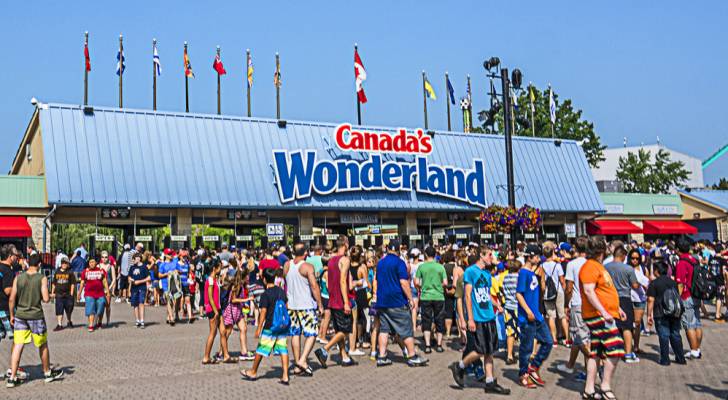
Canada’s Wonderland, Ontario’s premier amusement park, is under scrutiny by the Competition Bureau for allegedly advertising misleading ticket prices on its website. The federal agency has filed a lawsuit, claiming the park’s online pricing practices contravene the Competition Act by deceiving consumers about the true cost of admission.
Allegations of deceptive pricing practices
According to the Competition Bureau, Canada’s Wonderland misled consumers by advertising ticket prices on its website that did not clearly include mandatory fees, specifically naming additional charges for “processing” and “parking.” For example, the Bureau claims that some online ads displayed prices such as "$49.99" for admission, but once users advanced through checkout, they were presented with added costs that increased the total significantly.
"Canada’s Wonderland charges a processing fee for online purchases involving park admission, starting at $6.99 and increasing to $8.99 or $9.99 depending on the number of items purchased. For most purchases of non-admission-related products, a single $0.99 processing fee applies, regardless of the number of items," according to a press release from the Competition Bureau.
"The Bureau alleges that Wonderland has made, and continues to make, false or misleading price claims by advertising lower prices than what consumers ultimately have to pay as those prices exclude mandatory fixed fees. This practice, commonly known as drip pricing, is deceptive because consumers are not presented with an attainable price upfront."
In the Bureau’s press release, Matthew Boswell, Commissioner of Competition, emphasized the importance of transparency in pricing, stating, "Consumers have the right to know the full price they will pay before making a purchase. Businesses must ensure that all mandatory fees are clearly disclosed to avoid misleading consumers."
Economic significance of Canada’s Wonderland
Opened in 1981, Canada’s Wonderland is located in Vaughan, Ontario, and is Canada’s largest amusement park, featuring over 200 attractions, including 18 roller coasters and a 20-acre water park. The park plays a significant role in Ontario’s tourism industry, attracting millions of visitors, annually.
In 2023, Canada’s Wonderland reported an attendance of approximately 3.2 million visitors. The park’s operations contribute significantly to the local economy, generating substantial revenue and employment opportunities. In 2022, Ontario’s amusement parks and arcades industry generated operating revenue of $498.8 million, accounting for over half of the national total.
Legal and financial implications for Canada’s Wonderland
The Competition Bureau’s lawsuit could bring real financial and legal trouble for Canada’s Wonderland. If a court finds that the park broke the rules laid out in the Competition Act, it could face hefty fines or be forced to pay restitution to customers. Even more significantly, the park may have to overhaul how it presents prices online — changes that could impact its operations and customer experience.
Damage to brand trust and reputation
Canada’s Wonderland isn’t just a theme park — it’s one of Ontario’s most popular tourist destinations, drawing families and thrill seekers in droves each summer and to special events throughout the year. Its rides, attractions and events make it a key economic driver for Vaughan and the surrounding region, supporting local jobs and businesses.
But if consumers feel they’ve been misled about ticket costs, that trust could erode quickly. In a competitive tourism market where reputation drives revenue, even the perception of unfair pricing could impact attendance and reduce the park’s contribution to the local economy.
A possible industry-wide precedent
This case isn’t just about one amusement park. If the court sides with the Competition Bureau, it could prompt a wave of changes across Canada’s entertainment and tourism sectors. Other attractions may feel pressure to revisit how they advertise prices, especially when it comes to hidden fees. A ruling in Wonderland’s favour, however, could muddy the waters on what counts as transparent pricing.
Shifting consumer expectations
For today’s consumers — especially families planning big-ticket outings — price transparency isn’t a luxury, it’s a baseline expectation. Surprise fees tacked on at checkout have become a growing point of frustration, and lawsuits like this one may only accelerate calls for more honest, upfront pricing. As people become more aware of these practices, venues that fail to adapt could face not just legal pressure, but pushback from the very visitors they rely on.
Canada’s Wonderland now finds itself at the centre of that conversation. What began as a dispute over how prices appear online has become a test case for broader questions about fairness, trust and the rules of digital commerce. The Competition Bureau’s challenge is about more than a few extra dollars in service fees, it’s about setting a standard. And whatever the outcome, both the industry and its customers will be watching closely.
Sources
1. Canada.ca: Competition Bureau sues Canada’s Wonderland for allegedly advertising misleading prices online (May 5, 2025)
2. Statistics Canada: Roller coaster ride continues at amusement parks and arcades (May 8, 2024)
This article provides information only and should not be construed as advice. It is provided without warranty of any kind.